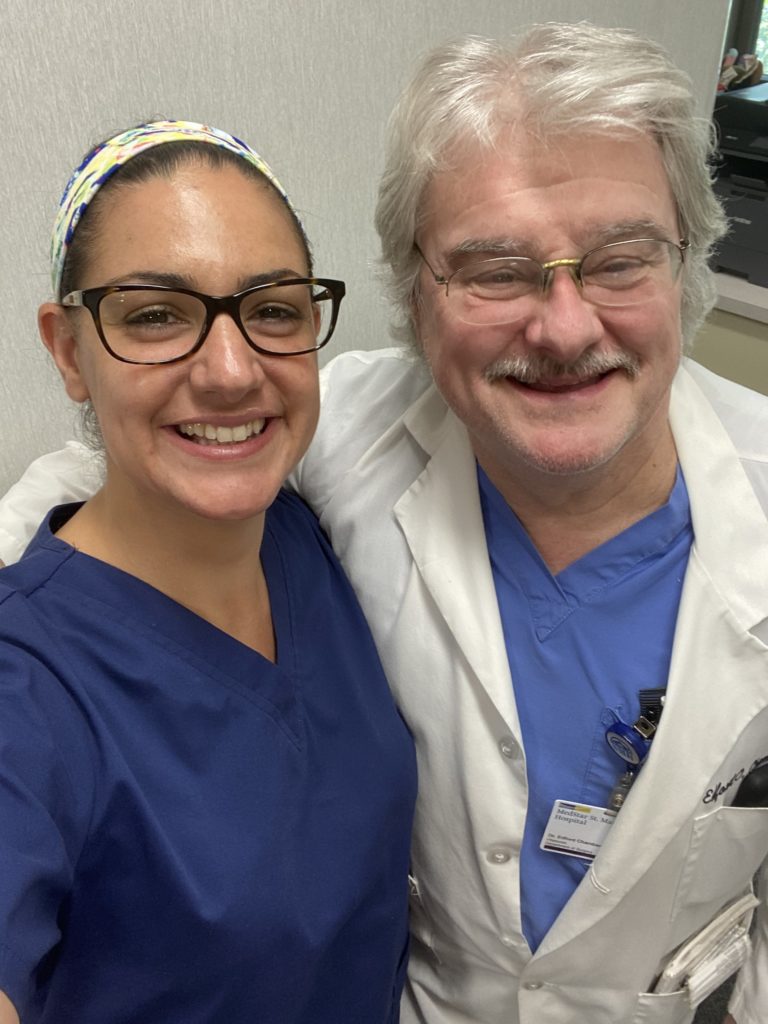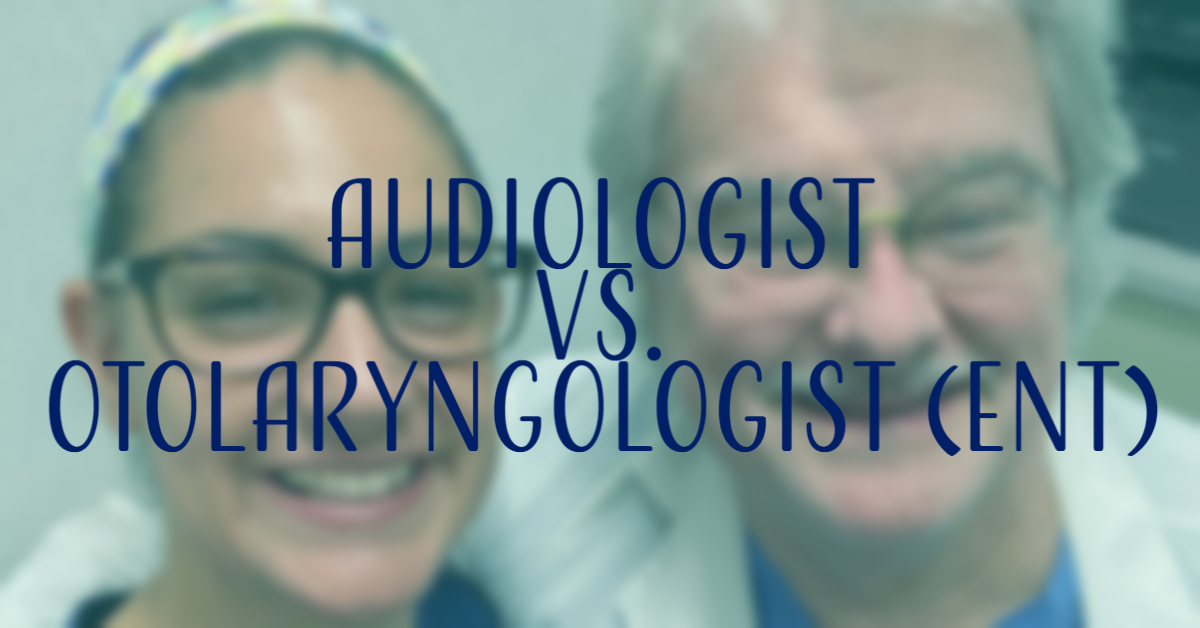
One of our very loved local ENT’s will be retiring in August. We have had several patients call us concerned about their hearing healthcare. We wanted to take a minute to answer some of the questions we have received regarding the role of an Audiologist versus an Otolaryngologist or ENT.
An Audiologist has the credentials Au.D. (Doctor of Audiology) not M.D. (Medical Doctor) after their name. An Audiologist is a healthcare professional that specializes in identifying, diagnosing, monitoring and non-medically treating hearing and/or balance disorders for both the adult and pediatric population.
The Role of an Audiologist
- Full diagnostic hearing evaluations
- Tinnitus evaluations
- Cochlear implant evaluations
- Cochlear implant mapping
- Vertigo/dizziness evaluations and treatment
- Removal of cerumen (wax) which may affect one’s hearing ability, successful completion of audiologic procedures, or the proper use/benefit from amplification system(s). NOTE: There are some limitations to this, as an Audiologist is not a physician, and per the state of Maryland licensing board an Audiologist cannot remove cerumen if it is past the second bend of the ear canal. This is when an appointment with an ENT would be necessary.
- Foreign body removal with noted limitations listed above
- Hearing aid fittings, adjustments, and troubleshooting
- Custom ear protection
Please note an Audiologist cannot prescribe medications or perform surgeries of any kind. If your condition requires medications or surgery, this is when you would need to be seen by an ENT.
The Role of an Otolaryngologist
An Otolaryngologist (ENT), is a physician/medical doctor that specializes in treating diseases of the head and neck. Specifically focused on conditions of the Ear, Nose, and Throat (ENT). Services provided by an ENT include, but are not limited to:
Ear
- Ear infections/drainage
- Tympanostomy tubes
- Ear injuries and deformities
- Mastoid debridement
Nose
- Nasal allergies
- Fractures
- Nosebleeds
- Sinus infections
- Septum correction
Throat
- Vocal cord lesions
- Tonsil and adenoid problems
- Gastroesophageal Reflux (GERD)
- Hoarseness, laryngitis
An ENT is a medical doctor and can prescribe medications and perform surgeries. If your condition requires medications or surgery, you need to be seen by an ENT.
Frequently Asked Questions
Q: When could I see an Audiologist first instead of an ENT?
A: An audiologist focuses on hearing loss and other related issues like tinnitus (ringing in the ears) or balance/dizziness issues. If you have been experiencing difficulty hearing or understanding conversations, then you could first visit an audiologist for a full hearing evaluation to determine the type and severity of hearing loss, if any. If the audiologist detects the presence of a medical condition that warrants further evaluation/treatment, then it would be recommended that you see an ENT.
Q: When should I see an ENT for issues related to my ears instead of an Audiologist first?
A: An ENT doctor treats patients for diseases or conditions of not only the ears, but also the nose or throat. However, if you are experiencing pain, swelling, drainage from their ears, or sudden hearing loss, then you should see your primary care physician or an ENT first. If the ENT doctor determines that you don’t have a disease or medical condition in need of further treatment, but suspects that hearing loss could be the issue, then he or she would refer you to an audiologist
Q: I normally have my hearing checked annually by an ENT. Am I able to come to your facility for these annual hearing tests?
A: Yes, an Audiologist can perform full diagnostic audiologic evaluations and monitor/determine if there is a change in your hearing as well as determine if that change is significant enough to warrant further medical evaluation/treatment. However, annual/bi-annual hearing tests are not recommended, unless it is deemed medically necessary in order for insurance to cover the examination. You would need to have either a hearing loss that requires yearly monitoring (i.e. conductive, mixed, asymmetrical,or fluctuating), or perceive a decrease in hearing sensitivity in order for the examination to be deemed medically necessary.
Q: I am used to going to the ENT to have my wax removed. Am I able to come to your facility for this procedure?
A: As long as the wax is soft enough and before the second bend of your ear canal, an Audiologist can perform this procedure. However, this procedure may not always be covered by insurance. Please note, if you had a surgery completed (i.e. mastoidectomy), you would need to be seen by an ENT for any mastoid debridement. In addition, if you have a tympanostomy tube placed in the ear and need wax removed or the tube cleared out, you would need to be seen by an ENT.
Q: Why do I need an order from my primary care physician in order for you to evaluate/treat my hearing, but I didn’t need one when I saw an ENT?
A: Medicare covers audiologic diagnostic testing provided by an Audiologist when (1) a physician or non-physician practitioner (nurse practitioner, clinical nurse specialist, or physician’s assistant) orders the evaluation for the purpose of informing the physician’s diagnostic medical evaluation or (2) determining appropriate medical or surgical treatment of a hearing deficit or related medical problem. An ENT is a physician, so an order is not required.



